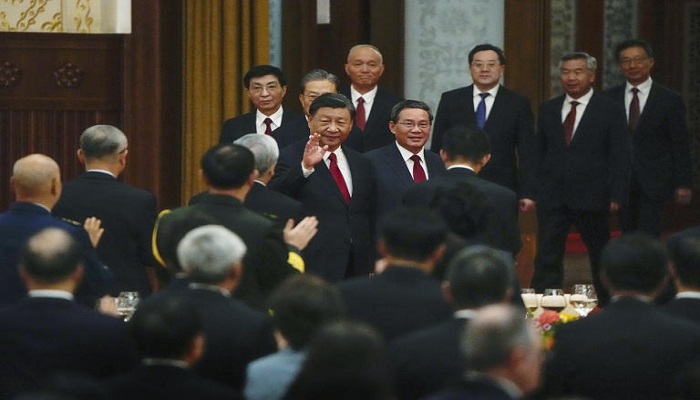In a renewed push to curb government extravagance, China’s Communist Party has issued strict new directives ordering officials to rein in spending on luxury items such as premium alcohol, cigarettes, and lavish meals during official functions.
The sweeping guidelines, released by the State Council, also target wasteful practices such as grand airport send-offs, excessive floral decorations at conferences, and non-essential infrastructure projects.
The move marks a significant revival of President Xi Jinping’s 2012 anti-corruption and austerity campaign, which aimed to instill discipline within party ranks and curb public resentment over displays of wealth and privilege among officials.
While the earlier campaign was lauded for promoting modest governance, it faced criticism for its inconsistent enforcement and limited progress on asset transparency.
Deputy Prime Minister Ishaq Dar to Visit China Amid Regional Tensions
The renewed austerity measures come at a time of heightened economic pressure for China. A slowing domestic economy, an unresolved trade conflict with the United States, and a sharp decline in land sale revenues have left local governments grappling with record-high debt burdens.
In late 2023, Beijing explicitly warned officials to “get used to belt-tightening,” signaling a long-term shift toward more frugal governance.

Earlier this year, the central government launched its most aggressive effort in years to manage local authority debt risks, aiming to reduce the chances of defaults while preserving room for essential economic stimulus.
The new guidelines are seen as part of this broader strategy to prevent financial instability and restore public confidence.
The financial markets responded quickly to the news. On May 19, consumer staples stocks—particularly those associated with premium consumption—led losses on the CSI 300 Index.
Shares of Kweichow Moutai Co., China’s iconic liquor brand often linked to official banquets, fell as much as 2.4%, marking their sharpest decline in six weeks.
The consumer staples sector overall slumped by up to 1.7%, reflecting investor concerns over declining demand from official channels.
China Issues First Rare Earth Magnet Export Permits; Volkswagen Suppliers Included
President Xi’s own modest lifestyle, frequently highlighted by state media, continues to serve as a symbolic pillar of the campaign. However, public skepticism remains.
Many citizens question the sincerity of the crackdown, citing the lack of public asset disclosures by high-ranking officials and continued reports of luxury consumption within elite circles.
Analysts believe the latest round of spending restrictions is both a fiscal necessity and a political maneuver to consolidate Xi’s leadership amid uncertainty. “It’s a strategic tightening of the reins—meant to show accountability while navigating complex domestic and global pressures,” said one Beijing-based economist.
US, China hail ‘constructive’ Geneva trade talks, WTO backs de-escalation efforts
As China confronts an increasingly challenging economic landscape, the success of these new austerity measures will depend not only on policy implementation but also on the leadership’s willingness to enforce reforms across all levels of government. The public—and the markets—will be watching closely.



